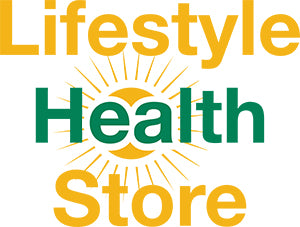Sugar-Free Sweet Treats

Sugar-Free Sweet Treats
Just because you’re trying to cut down on sugar, doesn’t mean you don’t deserve a sweet treat every now and then. Sure, regular old sugar is tied to increased obesity, diabetes, high cholesterol, heart disease, and even cognitive decline, but there are plenty of delicious (and even medicinal!) sugar-free sweet treats available.
Whether you’re diabetic, watching your weight, or trying to beat that 3 pm sugar slump, Diablo, Ricola, and a host of other healthier brands offer sweets, spreads, cakes, cookies, and more to satisfy your sweet tooth.
Diablo Sugar Free Sweets
Diablo is the UK’s first low-sugar confectionery range with no added sugar and, as they say, no compromise on taste. Each sweet has less than 13 calories but tastes just as sweet as real sugar-laden sweets!
Diablo Sugar-Free Cappuccino & Cream Sweets are suitable for diabetics and anyone watching sugar intake, and they’re vegetarian friendly too (not vegan though, sorry). Because these sweets are coffee flavoured, they do contain caffeine (26 mg per 100 g), so aren’t recommended for children or anyone who is pregnant.
Diablo also offer other sweets as well as a range of sugar-free chocolate bars, cookies, wafers, muesli bars, cakes, and even spreads – check out their chocolate spread and give your morning toast a serious upgrade.
Ricola
Ricola have become a household name for many, largely thanks to their herbal cough lozenges. But did you know that many of Ricola’s delicious and medicinal sweets are also sugar-free?
When looking at the Ricola range, bear in mind that their Original Herb Drops do contain sugar. In many of their sweets, though, Ricola uses aspartame to provide both sweetness and a fuller flavour, with the added bonus that this sweetener doesn’t damage teeth – pretty important if you’re chain-sucking cough drops all day!
Aspartame is approved by the FAO/WHO Expert Committee on Food Additives (JECFA) and the European Food Safety Authority (EFSA) as safe for human consumption, but if you’re still wary of aspartame, Ricola have another sweet surprise for you. The company recently launched sugar-free herb drops with Steviol glycosides (sweetened with Stevia) in France, Italy, and Germany. Here’s hoping the UK is next!
Ricola’s herbal products are created using herbs grown without herbicides, insecticides, fungicides or chemical fertilizers. More than two thirds of Ricola herb farmers have Bio Suisse certification, meaning they strictly use organic farming methods.
One of Ricola’s most popular products, Green Tea with Echinacea bonbons are sugar-free cough lozenges featuring antioxidant-rich green tea extract and immune-supportive echinacea extract, for on the spot herbal support at the first sign of a cough or cold. This formula features the company’s signature herbal blend and has a delicate flavour. Great to have on hand from first tickle in the throat to full recovery.
Sugar-free baking with xylitol
There are scores of sugar substitutes, making it a little tricky to choose the perfect sweetener for your next batch of pandemic baking. Most sweeteners can be categorised as one of four types: natural sweeteners, artificial sweeteners, dietary supplements, and sugar alcohols. And in that latter group, you’ll find xylitol, a super popular sugar substitute for baking cookies, cakes, and other sweet treats.
Sugar alcohols are a natural sweetener, instead of being chemically derived. And because they aren’t completely absorbed by the body, these plant-based sweeteners are lower calorie than regular sugar. Xylitol and other sugar alcohols are also absorbed much slower than sugars, making them low glycemic foods.
Sugar alcohols are especially good when used alongside mint as they have a cool, fresh finish with some ‘zip’. Xylitol is also great for use in cookies and cakes, though be aware that sugar alcohols don’t ‘brown’ quite as quickly or fully as conventional sugar. All that means is you’re better off timing your baking rather than relying on a golden-brown hue as a sign your cake and cookies are ready to be removed from the oven.
Xylitol isn’t a zero-calorie sweetener - it provides nine calories per teaspoon (compared to 16 for sugar) – but it makes for a much better cake than truly zero-calories artificial sweeteners. That’s because while xylitol is 5% less sweet than sugar, it has 40% fewer calories and a low glycemic index.
Xylitol is also super easy to use. It looks and tastes like sugar and responds in the same way in baking, meaning you can mix it with oils and create the same chemical reactions needed for your next Great British Bake-Off inspired sugar-free baking adventure!
